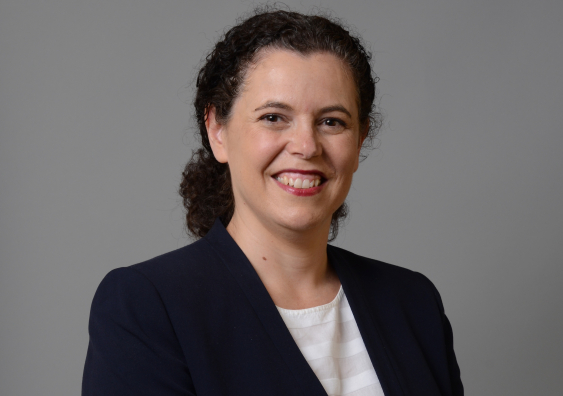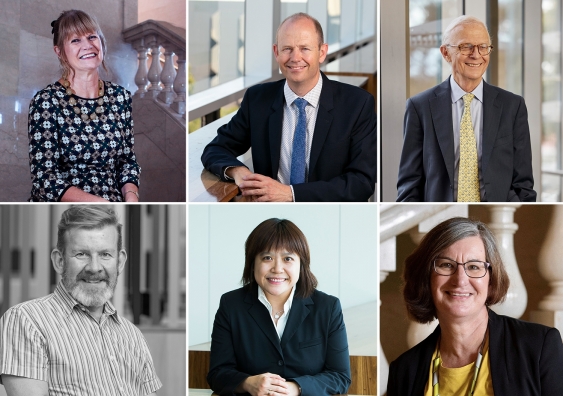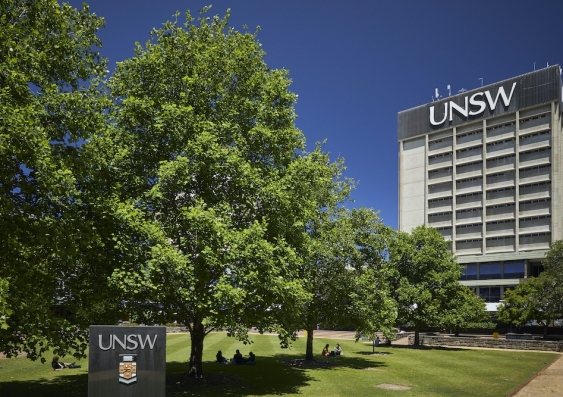UNSW professors join ranks of the Academy of Social Sciences
2024-11-05T08:48:00+11:00

Professor Christopher Pettit and Professor Lyria Bennett Moses.
Photo: UNSW Sydney
Two UNSW academics have been elected Fellows for their significant contributions to city planning and the impact of technology on legal systems.
UNSW Law & Justiceās Professor Lyria Bennett Moses and UNSW Arts, Design & Architectureās Christopher Pettit have been elected Fellows of the Academy of the Social Sciences in Australia (ASSA).Ā
Fellows include Australiaās leading ¹ū¶³app and practitioners across the breadth of social sciences disciplines and the UNSW professors are among 20 elected in 2024.
Academy President and UNSW Business Schoolās Professor Richard Holden said: āThe appointment of these scholars to the Academy is a recognition of their remarkable contributions to the social sciences. Their work ā whether it be in public health, education, environmental sustainability or Indigenous research ā addresses the pressing challenges we face as a society. We are incredibly proud to welcome them to the Academy.
āThese Fellows bring fresh insights and diverse perspectives that are essential for driving innovative solutions and influencing policy. Their expertise spans a wide array of disciplines, reflecting the depth and diversity of the social sciences in Australia.Ā
āThe Academy takes pride in nurturing Australiaās most talented social scientists. Our new Fellows are not only leaders in their respective fields, but are also committed to advancing public discourse and fostering a more informed society. Their appointment signifies our continued dedication to recognising and celebrating excellence in the social sciences.ā
Technology and law
Prof. Bennett Moses is Head of the School of Law, Society and Criminology and a member of UNSWās Institute for Cyber Security.
Her research explores how technology impacts the operation of law and the legal system. She investigates legal issues and gaps that emerge as technology evolves ā like privacy concerns, cyber security threats and AI bias ā and how these issues are handled in Australia and other countries.Ā
Prof. Bennett Mosesās work also examines the difficulties in regulating ātechnologyā as a single category, given its rapid development and diversity. Her research aims to understand and improve how laws can adapt to keep up with technological advancements and address the unique challenges they bring.
Recently, Prof. Bennett Moses has been working on legal and policy issues associated with the use of artificial intelligence, as well as on the appropriate legal framework for enhancing cyber security through her work with the Cyber Security Cooperative Research Centre.
āMy recent research considers the limit case for the use of generative artificial intelligence in legal institutions, focusing not only on limitations of outputs, but also considering broader outcomes and circumstances where the process of decision-making should exclude particular kinds of tools,ā she said.Ā
Prof. Bennett Moses said she felt very honoured to be elected as a Fellow of the Academy, particularly given the contributions its members have made to our understanding of ourselves and our world, as well as to evidence-based policy in Australia and beyond.
Improving city planningĀ
Director of the City Futures Research Centre UNSW, Prof. Pettit focuses his research on the convergence of city planning and digital technologies.
It has resulted in the development of several digital platforms for government and industry to assist with their planning decisions. His work aims to improve how planning decisions are made by making data-driven insights more accessible and actionable.
āI am deeply honoured to be joining the Academy of Social Sciences in Australia. With forward-thinking initiatives, such as the Decadal Plan for Social Science Research Infrastructure 2024-33, the Academy is taking a leadership role in positioning the social sciences disciplines in Australia to be globally competitive and impactful,ā Prof. Pettit said.
āI am excited to be a part of this journey particularly, in contributing to the understanding the role ethical data and trustworthy technologies such as artificial intelligence can play in shaping sustainable, resilient, prosperous and equitable future cities and communities.ā
A recent example of a platform assisting with city planning is the Rapid Analytics Interactive Scenario ¹ū¶³appr (RAISE), which enables accurate and transparent property valuations. Prof. Pettit and a team from UNSW worked with FrontierSI and a consortium of partners to bring this technology to market in 2022.
Media enquiries
For enquiries about this story and interview requests please contact Yolande Hutchinson:
Tel: 0420 845 023
Email: y.hutchinson@unsw.edu.au







